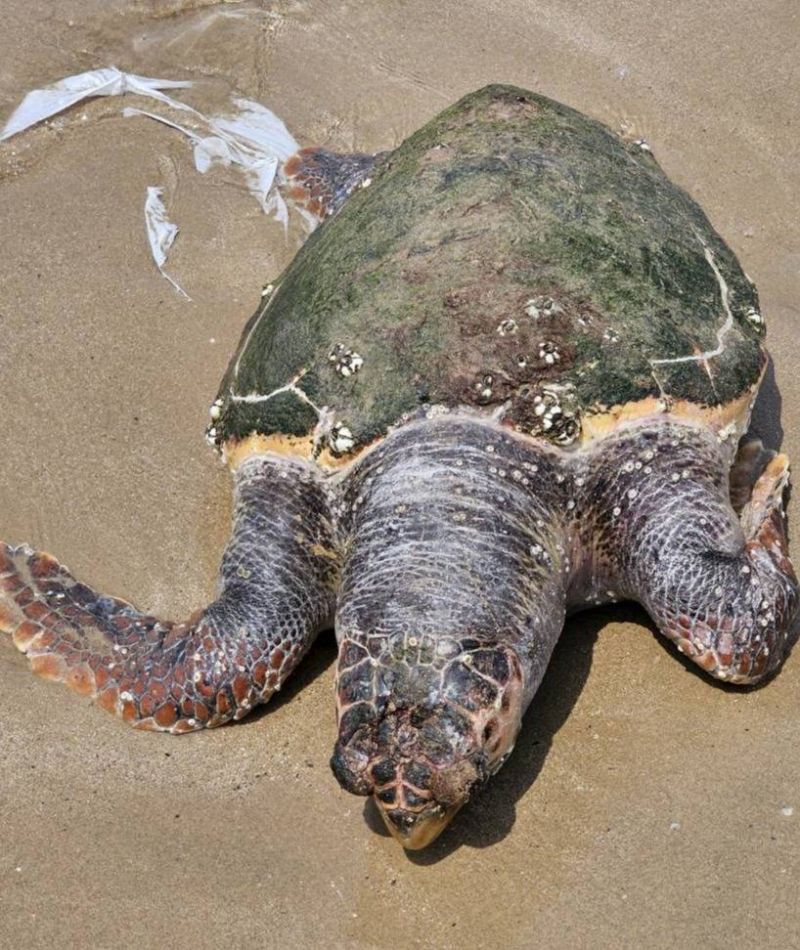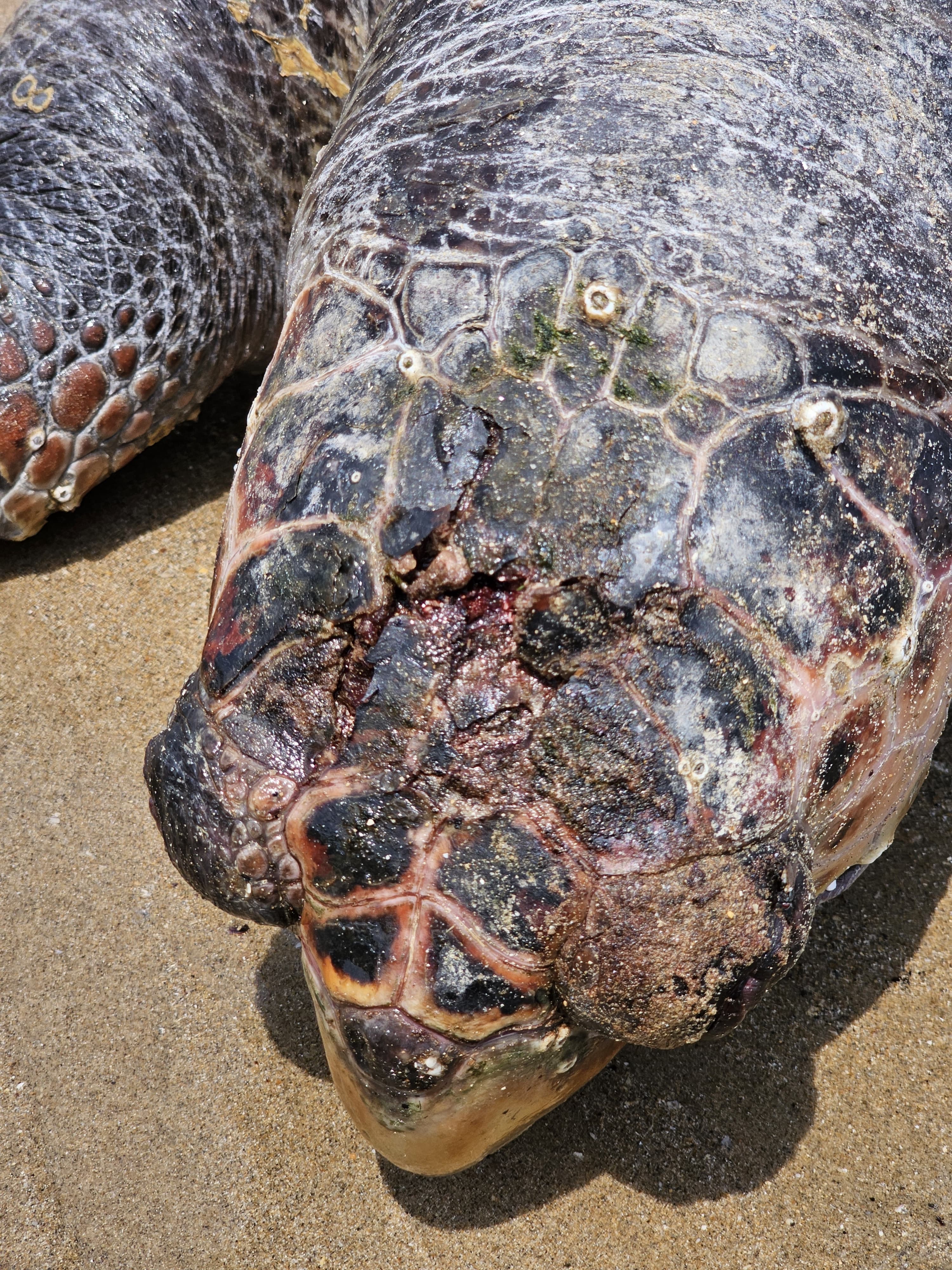
Loggerhead sea turtle was found dead with a blow to its head on a beach on April 29, 2024 in Minieh, Tripoli, North Lebanon. (Courtesy of Akkar Trail organization)
BEIRUT — Volunteers from the environmental organization Darb Akkar ("Akkar Trail") found a dead sea turtle with a severe head wound on Monday, on a beach in Minieh, North Lebanon.
Marine turtle mating season has begun, Ali Badreddine, a marine scientist and director of the Tyre Coast Nature Reserve, told L'Orient Today, noting that the animals are more active closer to the shoreline throughout the summer, starting with the mating season in April.
Badreddine identified the turtle as female, saying it belongs to the Caretta caretta species — commonly known as a loggerhead turtle.
Sharif Jemaa, a marine scientist from the Marine Science Center of the National Council for Scientific Research, confirmed that the turtle died from a severe blow to the head, adding that "this is not the first time dead turtles are found beaten."
“It is not clear whether someone struck the turtle or it [accidentally] hit its head in a boat … nothing is for certain,” the scientist added, noting that these are common threats for sea turtles.
Baderddine, analyzing images of the turtle found just north of Tripoli, estimated its shell to be around 80 centimeters in length, placing its age between 35 and 40 years old.
 Loggerhead sea turtle was found dead with a blow to its head on a beach on April 29, 2024 in Minieh, Tripoli, North Lebanon. (Courtesy of Akkar Trail organization)
Loggerhead sea turtle was found dead with a blow to its head on a beach on April 29, 2024 in Minieh, Tripoli, North Lebanon. (Courtesy of Akkar Trail organization)
Life on the edge
Once the mating season ends, female turtles approach sandy beaches, starting around June, to lay their eggs.
"Sandy beaches in Lebanon are not abundant; 80 percent of Lebanon's shoreline is rocky," Baderddine pointed out, adding that the longest sandy beach lies in southern Lebanon, where Tyre Coast Nature Reserve was founded.
These beaches are natural nesting grounds for both the endangered green turtle and the loggerhead turtle, a species categorized as vulnerable by the International Union for Conservation of Nature. Female sea turtles born on Lebanon's shores return to the same shores years later to lay their own eggs.
However, at least 80 percent of the country’s 220 kilometers of shoreline is privatized for construction and resort projects, according to a study by the Institute of the Environment at the University of Balamand, leaving little space for Lebanon’s turtles to lay their eggs safely.
According to the International Union for Conservation of Nature (IUCN), a Swiss-based global authority on the status of the natural world, loggerhead turtles, including those known to Lebanon, have been listed as "vulnerable," and are in need of intensive conservation measures.
Threats to turtles include fishing, recreational activities, pollution and climate change, among others, according to IUCN. In Lebanon, sea turtles are often illegally hunted and mummified for trade purposes. Another threat to marine turtles in Lebanon is plastic, scientist Jemaa said, as they tend to choke on it or swallow it, bringing toxins into their system.
As part of Tyre Coast Nature Reserve's conservation efforts, the organization "starts preparations to welcome the season in May," ahead of the nesting season, the marine scientist said.
"We work on [spreading] awareness about sea turtles with students and fishermen," Baderddine said. "We ask those who own boats not to get close to turtles mating if they spot them nor to take any videos of them as they, both the male and the female [turtles], tend to get stressed out."
